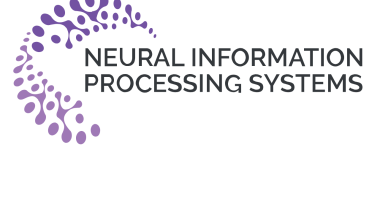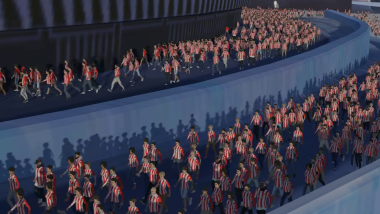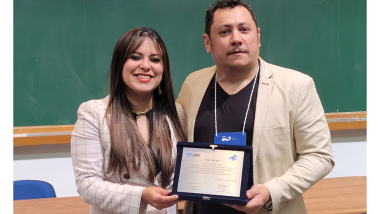Sascha Lill defenderá su tesis doctoral el lunes 27 de junio
La defensa se llevará a cabo en línea y será retransmitida en directo
Sascha Lill se licenció en matemáticas y en fisica en la Universidad Otto von Guericke en 2016 y en 2018 obtuvo un máster en Física teórica y matemática por LMU Munich.
En 2021 se unió al Basque Center for Applied Mathematics - BCAM como estudiante de doctorado dentro de la línea de investigación de Quantum Mechanics.
Su tesis doctoral, Time Dynamics in Quantum Field Theory Systems, ha sido supervisada por Prof. Roderich Tumulka (University of Tübingen), Prof. Jean-Bernard Bru (BCAM-Ikerbasque-UPV/EHU) y Prof. Stefan Teufel (University of Tübingen).
La defensa se llevará a cabo en línea y será retransmitida en directo a través de la plataforma Zoom. Tendrá lugar el lunes 27 de junio a las 14:00 horas, y los usuarios podrán seguirla en directo a través del siguiente enlace: https://zoom.us/j/9274418792?pwd=VGFSdVBTdlc0M0c4SGtzTzNaMTFpZz09
En nombre de todos los miembros de BCAM, nos gustaría desear a Sascha la mejor de las suertes en la defensa de su tesis.
PhD thesis Title:
Time Dynamics in Quantum Field Theory Systems
Abstract:
Establishing a rigorous description of non-perturbative dynamics in quantum systems with particle creation and annihilation (here called Quantum Field Theory or QFT systems) can, depending on the model, be a considerable mathematical challenge. We discuss some novel mathematical tools which may simplify such kind of descriptions in future investigations.
One tool is an axiomatic setting called "Hypersurface Evolution" and recently introduced by Lienert and Tumulka, which serves as a Schrödinger picture alternative to the widely used Haag-Kastler setting. Using Hypersurface Evolutions, we establish a proof for Born's rule on arbitrary Cauchy surfaces.
A further set of tools is given in the framework of Fock space extensions. We discuss applications of the Infinite Tensor Product (ITP) space construction proposed by von Neumann in the 1930s. Further, we introduce a second Fock space extension framework, called Extended State Space (ESS), which rigorously accommodates divergent sums and integrals appearing in QFT. Both settings are applied to simple physical examples involving Weyl and Bogoliubov transformations.
Related news
Eventos, Sobre el centro
Segunda edición del Encuentro de Dinámica de Fluidos Matemática celebrado en BCAM
Investigación



